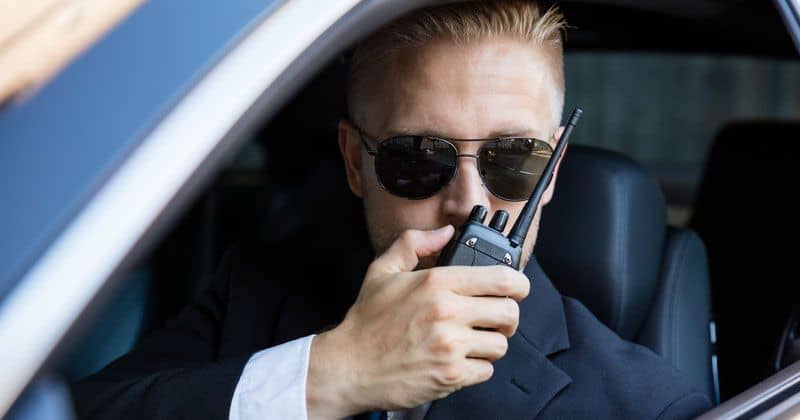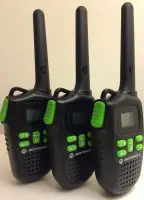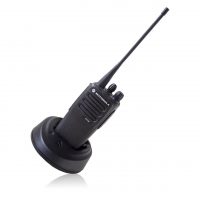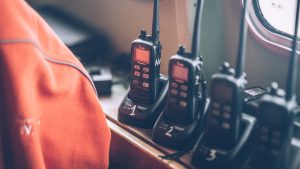
Walkie talkie privacy codes (CTCSS) and other formats like DCS are designed to keep your communications secure and only accessible to those you intend to hear them. If you are in an area busy with other people using walkie-talkies, such as a ski resort, it can be difficult to find a clear channel to use for you and your friends. Privacy codes are a feature developed to overcome this problem.
Table of Contents
Walkie Talkie Privacy Code Overview
Privacy codes are just one name used for this particular feature, some other names used in the radio world for this functionality are:
- Continuous Tone-Coded Squelch System (CTCSS)
- Digital Code Squelch (DCS)
- Interference Eliminator Codes
- QuietTalk/Digital QuietTalk (QT/DQT)
- Private Line (PL)
- Sub-channels
However, privacy codes are probably the most popular name and are used by most walkie talkie manufacturers.
How do privacy codes work?
If you activate the privacy code functionality on your device, it will attach an inaudible tone to each outgoing transmission. Incoming transmissions are filtered, only transmissions that have the same inaudible tone attached are allowed through.
The analog CTCSS codes are numbered from 1 to 38 and are generally compatible between different brands. The digital DCS codes are numbered from 39 up to 99, 121 or even higher, but they will probably not be entirely compatible between different brands.
Privacy codes can also be used on all channels, it does not matter if they are FRS, GRMS or another service. So it is easy to see how this feature greatly increases your chances to find a free channel to communicate with your party. A good explanation of CTCSS tones can be found here.
How to make walkie talkie private channel?
Let’s say you have a walkie-talkie with 22 FRS and GMRS channels. If your walkie-talkie does not have the privacy codes feature you can only select from these 22 channels. But if you have a walkie-talkie with 121 privacy codes you can choose from 22 * 121 = 2662 channel and privacy code combinations. That way, you can create a channel of communication only you and your partners will know the channel and privacy code combination for, providing a lot of privacy. That said, there is not a complete guarantee that someone else can’t hear your communication.
Do privacy codes give you any actual privacy?
The term “privacy code” is actually very misleading, because using privacy codes does not actually make your communication private, the name Interference Eliminator code is actually a more accurate description of this feature.
Privacy codes don’t give you any actual privacy because the feature only filters out transmissions that don’t use the same privacy code as you are using. But in practice, anyone can still listen to your conversations by simply selecting your channel and disable the privacy code feature. That said, you should feel decently secure when you operate on the same channel and privacy code as your partner.
Can walkie talkies and two-way radios be traced?
It is hard to trace walkie talkies, especially without super high-end equipment. If you are using privacy codes, this will help protect your communication as well. While we can’t guarantee you will have complete security, it is unlikely your messages will be intercepted in most cases. That said, if you broadcast continually from a set location and use repeaters or other broadcasting equipment beyond the scope of a normal walkie talkie, it would be possible for organizations or individuals to somewhat locate your general area, though specifics might be difficult.
Can walkie talkies be hacked?
Many parents wonder whether walkie talkies are safe for their kids. While we would recommend them as a great tool to keep in safe communication with your child, and know where they are and if they are OK, you should be aware that other walkie talkie users could potentially over hear or even talk over the walkie talkie channels if they happen to be in the area. While this is rare, make sure to tell your kids not to talk with strangers over the walkie talkie, just like you would tell them to do in-person or over the phone.
Walkie talkie lingo and codes, etiquette, and other helpful tips
Now that you know how walkie talkie privacy codes work, we have some other helpful tips for you. If you want to learn more about walkie talkie lingo and codes, we have a helpful guide here. In addition, there are general rules and procedures which walkie talkie users use, and we have detailed that walkie talkie etiquette. Finally, check out our Best Walkie Talkies Guide which will give you all the info and reviews you need to find the perfect walkie talkie for you and your family!
We've created a buyers guide that will tell you everything you need to know to buy the perfect walkie talkie.





